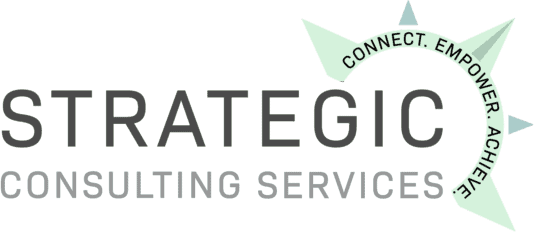This month, and every November, we recognize and honor the great service that our nation’s Veterans have provided to us. Our freedoms and quality of life were built upon the sacrifices they have made.
Why Veterans are Great Employees
Veterans are dedicated and loyal employees who aspire to completing tasks with excellence. Here are some characteristics that employers have found make Veterans great in their workplaces:
- Veterans understand that actions and behaviors reflect on the organization: Former military personnel know what it’s like to be under scrutiny, whether on a mission, back at the base, or on leave. They understand that everything they do and say reflects on the integrity and reputation of the organization.
- Veterans have cross-cultural training: Former military personnel have had the opportunity to interact with people of many countries and have also worked alongside others from all over the United States, providing them with knowledge of diverse cultures.
- Veterans are Innovative: Former military personnel are known for identifying opportunities for improving processes and results. Their field experience required adapting to uncertain or changing circumstances, and sometimes not being able to receive assistance from back-up teams, which further developed their innovative thinking.
- Veterans have excellent presentation skills: Part of the military culture is summarizing and reporting information clearly and succinctly. Delivering accurate information and being clear in meaning are both critical in the military.
- Veterans exhibit quick thinking: Military deployments and assignments require leaders to quickly analyze situations, continuously process new information, and make decisions that can have serious implications. Veterans have developed and display focused thinking and quick action under pressure.
- Veterans are prepared and flexible: Responding to changes is crucial in many military activities. Making sure that equipment is operating correctly and that supplies are ready allows responsiveness to organizational needs. Experiences in uncertain situations yields flexible employees.
- Veterans demonstrate a commitment to the greater good: Veterans have shown that they are willing to sacrifice personal reward for greater, collective good, which is often a valuable asset in the workplace.
Challenges that Veterans (and others with PTSD) May Experience
Veterans often have faced traumatic experiences and some are in recovery from PTSD. Here are some ways that Veterans may need your support.
Lack of Concentration: People with PTSD may have difficulty concentrating on job tasks.
- Remedies:
- Reduce distractions in the work environment
- Provide space enclosures or a private space
- Allow the employee to play soothing music using a headset
- Increase natural lighting or increase full spectrum lighting
- Divide large assignments into smaller goal oriented tasks or steps
- Plan for uninterrupted work time
Interacting with Co-workers: People with PTSD may have difficulty working with others.
- Remedies:
- Encourage the employee to walk away from frustrating situations and confrontations
- Allow employee to work from home part-time
- Provide partitions or closed doors to allow for privacy
- Provide disability awareness training to coworkers and supervisors
Dealing with Emotions: People with PTSD could have difficulty exhibiting appropriate emotions or controlling anger.
- Remedies:
- Refer to employee assistance programs (EAP) and veterans centers
- Use stress management techniques to deal with frustration
- Allow telephone calls during work hours to doctors and others for needed support
- Allow frequent breaks
Sleep Disturbance: People with PTSD may have disruption in sleep patterns that could affect workplace performance.
- Remedies:
- Allow the employee to work one consistent schedule
- Allow for a flexible start time
- Combine regularly scheduled short breaks into one longer break
- Provide a place for the employee to sleep during break
Absenteeism: People with PTSD could have absenteeism or tardiness issues or have difficulty maintaining reliable attendance.
- Remedies:
- Allow for a flexible start time or end time, or work from home
- Provide straight shift or permanent schedule
- Count one occurrence for all PTSD-related absences
- Allow the employee to make up the time missed
Strategic Consulting is Your Partner in Managing Workplace ADA Issues
Our team is here to help with your disabilities accommodation issues, vocational rehabilitation needs, ergonomic evaluations, and other employee needs.
For twenty years, we have been helping companies in the Pacific Northwest with worker injuries, disabilities, and other vocational challenges. We are here to support you in this unprecedented era of teleworking and WFM.
We have partnered and provided solutions to some of the largest companies in the world (such as Boeing, Microsoft, and Amazon). But, at our core, we are still “people taking care of people,” one project at a time. Our success is built upon and providing you the best solution to your workplace challenge. Contact us today by filling out a form (below), submitting a referral, or visiting our ‘Contact Us‘ page to find your nearest office.

Ric has been working in the industry since 2002, specializing in developing employer jobsite analysis and light duty programs, ergonomics consultations and adjustments, disability accommodations and providing effective return to work solutions. Ric is Matheson trained in Ergonomics and is a Certified Ergonomics Evaluation Specialist. He earned a Bachelor of Arts Degree in Psychology from Western Washington University and later his Master’s Degree, M.Ed., Education Counseling from Seattle Pacific University. Ric is currently a Registered Vocational Rehabilitation Counselor for the Department of Labor and Industries and has been a Certified Disability Manager Specialist since 2006.

